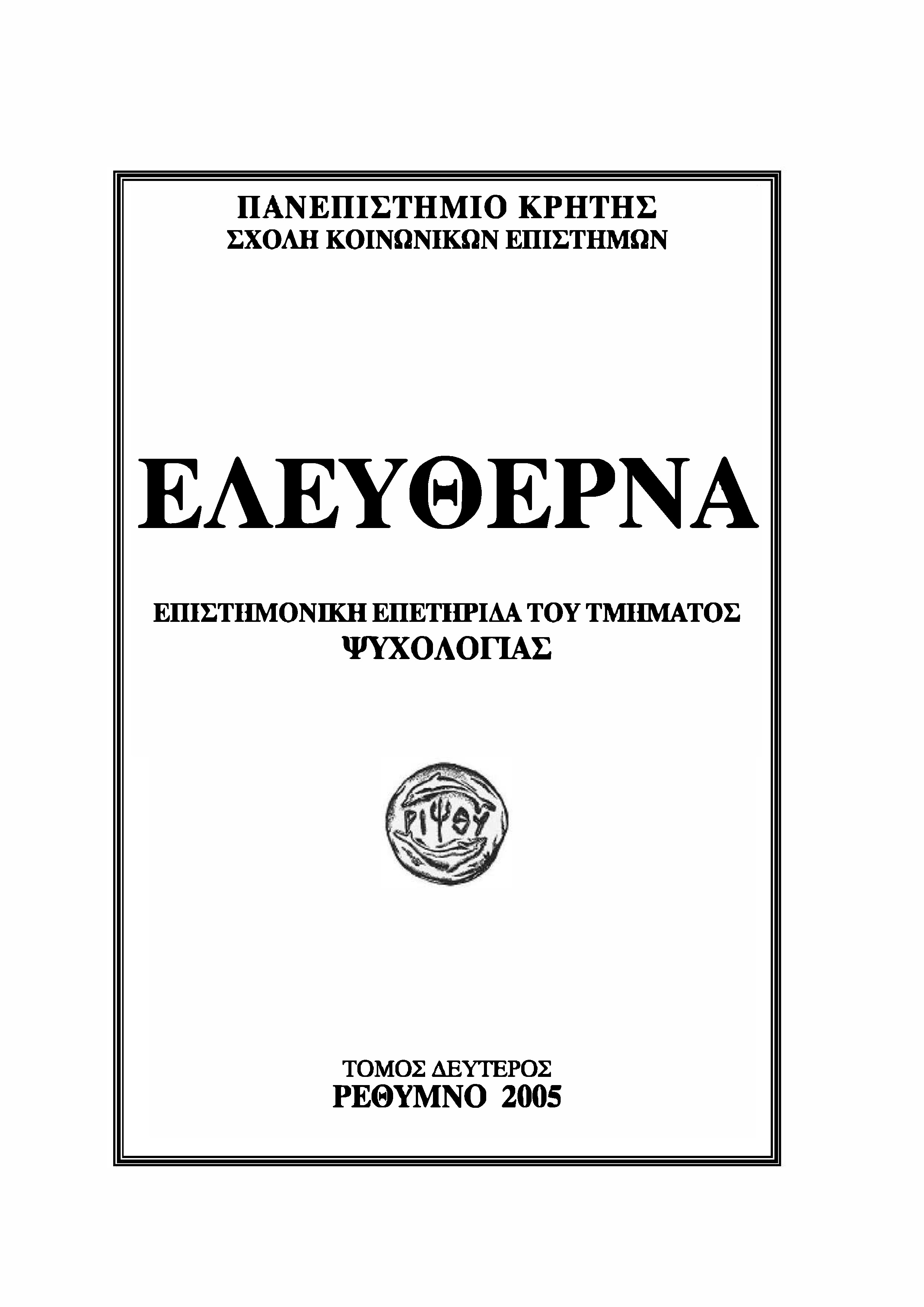The construct of resilience in adolescence: issues of theoretical definition and methodological design
DOI:
https://doi.org/10.26248/eleutherna.v2i0.154Keywords:
Resilience, adolescence, protective processes, adaptationAbstract
The present text attempts to study the constructs su"ounding the phenomena of resilience during adolescence, or those dynamic processes that favour positive adaptation under adverse conditions. In tandem, the methodological dimensions underlying the theoretical definition of the boundaries of resilience are examined. The milestones of resilience research since its inception are presented selectively, as are cutting edge discourses on its operational definition within the stressprocess model as the developmental outcome of interactive processes between risk
factors and protective factors or mechanisms. The latter originate from both interpsychic characteristics of the person (e.g. coping, intelligence, self-control) and from psychosocial characteristics of the environment (e.g. family relations, social support). Emphasis is given to the significance of the context, within which the processes facilitating or hindering the existence of resilient phenomena are manifested, for the accurate determination of the interactive relations among the variables under study. The types of effects of difef rent variables and their respective emergent models of protection are examined, while two distinct but complementary methodological approaches to the study of the above models are also discussed. Finally, directions are offered towards future research efforts that will reflect and extend current achievements on the area of the definition of adolescent resilience as specified here.
Downloads
Published
How to Cite
Issue
Section
License
This work is licensed under a Creative Commons License Attribution-NonCommercial-ShareAlike 4.0 International (CC BY-NC-SA 4.0).
Under this license EJPBS provides immediate open access to its content on the principle that making research freely available to the public supports a greater global exchange of knowledge.


